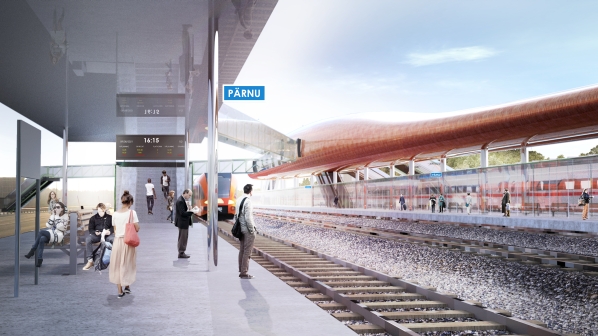The EU says the funding will help plug missing transport links across the continent, support sustainable transport and create jobs, while also supporting the economic recovery from the coronavirus pandemic.
The funding will also help the EU deliver its climate objectives set out in the European Green Deal, with a strong emphasis on projects that reinforce rail connections, including cross-border links and connections to ports and airports.
“The €2.2bn EU contribution to this crucial transport infrastructure will help kick-start the recovery, and we expect it to generate €5bn in investments,” says EU commissioner for transport, Ms Adina Vălean. “The type of projects we invest in ranges from inland waterways transport to multimodal connections, alternative fuels to massive railway infrastructure. The CEF is one of our key instruments in creating a crisis-proof and resilient transport system - vital now and in the long run.”
The rail projects allocated funding include Rail Baltica and the cross-border section of the line between Dresden, Germany, and Prague in the Czech Republic.
Nine projects have been allocated more than €49.8m to facilitate the rollout of ERTMS. The EU says upgrading locomotives and infrastructure with the train control system will boost safety, decrease travel times and optimise track usage.
The projects were selected for funding via two competitive calls for proposals launched in October 2019, with the regular CEF Transport call, and in November 2019, with the CEF Transport Blending Facility call.
The EU’s financial contribution is provided in the form of grants, with different co-financing rates depending on the project type. For 10 projects selected under the blending facility, EU support will be combined with additional financing from banks via a loan, debt, equity or any other repayable form of support.
Following EU member states’ approval of the selected projects, the European Commission (EC) will adopt formal financing decisions in the coming days. The EC’s Innovation and Networks Executive Agency (INEA) will sign the grant agreements with the project beneficiaries by January 2021 at the latest.
The rail projects allocated funding include:
- The Czyzew - Bialystok section of the E75 railway line (Phase 2) (€385.7m): The second stage in a project to modernise the section as part of the Rail Baltica upgrades in Poland. The project will remove bottlenecks, improve line speed, increase safety by constructing new grade-separated intersections, and remove 22 level crossings
- Modernisation of the Pardubice Railway Junction (€125.9m): The project involves modernising the Pardubice railway junction on the Prague - Brno corridor in the Czech Republic. Pardubice main station will be upgraded as part of the project
- Rail Baltica (Part 5) (€108m): Part 5 of Rail Baltica will continue constructing the sections in Riga and at Riga Airport in Latvia and start new construction work for the main line in Lithuania. Construction bases will be prepared in Estonia, and preparatory work for electrification will begin. Works will continue at Ülemiste railway terminal in Tallinn and will start at Muuga freight terminal in Estonia
- Rail Baltica (Part 4) (€74.8m): Part 4 includes the design of the energy and control command systems, preparation of joint procurement for materials, a multimodal traffic demand model, spatial planning and design of local facilities and of regional stations in Estonia, Latvia and Lithuania
- Upgrade and new build of Stuttgart - Wendlingen line (€64.4m): The upgrade and new-build project will connect Stuttgart Airport and exhibition centre to German Rail’s (DB) long distance network, expanding the regional service, and link the airport to the new Wendlingen - Ulm line, enabling 250km/h operation
- Grand Paris Express - Line for Airport and Research Area (€63.8m): The tunnelling works along the Grand Paris Express line will connect Orly Airport and the Massy-Palaiseau high-speed station to Versailles, while serving major economic hubs such as a key scientific and technological cluster
- MXP-NLINE (€63.4m): The project will link Terminal 2 of Milan Malpensa Airport in Italy with lines towards Gallarate and Switzerland, connecting the airport towards the north.
For detailed data on rail projects in Europe and around the world, subscribe to IRJ Pro.

